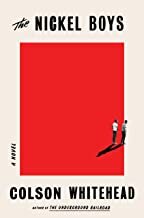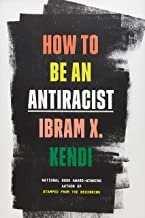A Catalog of Racial Justice Resources
The following resources have been put together to make it a bit easier for your church to engage in the topic of racial justice. We invite you to do a book study, watch a film together or find other ways to engage in discussions and action around racial justice in your congregation – from children to adults.
Consider the following questions as you read together or watch a film: What have I learned? What can I do now? How has this book/film changed me; made me think differently? What did I learn about myself and my own racism?
A number of these resources provide excellent study guides and follow-up material, as well as background material. If you are needing further support, please contact our Methodist Federation for Social Action group – OIMFSA.org or leave a message or question on our Facebook page: MFSA Oregon-Idaho. You are probably not the only person with that question or need.
Consider action opportunities for public witness – attending a community event for MLK Day, letter writing campaign on a particular issue, etc.
Loving God, we desire to embrace the dignity of each human person as revealed by the mystery of the Incarnation. Help us to live our commitment to undo racism. Empower us to participate in the right relationships, healing and reconciliation. Strengthen us in our resolve to eradicate racism within ourselves, our congregations, our churches, and our global community.
We offer this prayer in a spirit of trust and hope in your providence. Amen
Waking Up White by Debby Irving
“…a brutally honest, unflinching exploration of race and personal identity, told with heart by a truly gifted storyteller. Much as Irving’s family sought to shield her from the contours of the nation’s racial drama, far too many white Americans continue to do the same. For their sakes, and ours, let’s hope Irving’s words spark even more truth-telling. They certainly have the power to do so.” –Tim Wise, author of White Like Me
White Fragility: Why It’s So Hard for White People to Talk About Racism by Robin DiAngelo
This New York Times best-selling book exploring the counterproductive reactions white people have when their assumptions about race are challenged, and how these reactions maintain racial inequality.
In this “vital, necessary, and beautiful book” (Michael Eric Dyson), antiracist educator Robin DiAngelo deftly illuminates the phenomenon of white fragility and “allows us to understand racism as a practice not restricted to ‘bad people’ (Claudia Rankine). Referring to the defensive moves that white people make when challenged racially, white fragility is characterized by emotions such as anger, fear, and guilt, and by behaviors including argumentation and silence. These behaviors, in turn, function to reinstate white racial equilibrium and prevent any meaningful cross-racial dialogue. In this in-depth exploration, DiAngelo examines how white fragility develops, how it protects racial inequality, and what we can do to engage more constructively.
"White Fragility" Readers Guide and other resources.
So You Want to Talk About Race by Ijeoma Oluo
Widespread reporting on aspects of white supremacy, from police brutality to the mass incarceration of Black Americans, has put a media spotlight on racism in our society. Still, it is a difficult subject to talk about. How do you tell your roommate her jokes are racist? How do you explain white privilege to your white, privileged friend?
In So You Want to Talk About Race, Ijeoma Oluo guides readers of all races through subjects ranging from intersectionality and affirmative action to "model minorities" in an attempt to make the seemingly impossible possible: honest conversations about race and racism, and how they infect almost every aspect of American life.
The New Jim Crow: Mass Incarceration in the Age of Colorblindness
by Michelle Alexander
With dazzling candor, legal scholar Michelle Alexander argues that "we have not ended racial caste in America; we have merely redesigned it." By targeting black men through the War on Drugs and decimating communities of color, the U.S. criminal justice system functions as a contemporary system of racial control—relegating millions to a permanent second-class status—even as it formally adheres to the principle of colorblindness. In the words of Benjamin Todd Jealous, president and CEO of the NAACP, this book is a "call to action."
In early January, a tenth-anniversary edition of this iconic bestseller - “one of the most influential books of the past 20 years,” according to the Chronicle of Higher Education - with a new preface by the author, will be released.
Seldom does a book have the impact of Michelle Alexander’s The New Jim Crow. Since it was first published in 2010, it has been cited in judicial decisions and has been adopted in campus-wide and community-wide reads; it helped inspire the creation of the Marshall Project and the new $100 million Art for Justice Fund; it has been the winner of numerous prizes, including the prestigious NAACP Image Award; and it has spent nearly 250 weeks on the New York Times bestseller list.
Most important of all, it has spawned a whole generation of criminal justice reform activists and organizations motivated by Michelle Alexander’s unforgettable argument that “we have not ended racial caste in America; we have merely redesigned it.” As the Birmingham News proclaimed, it is “undoubtedly the most important book published in this century about the U.S.”
Rising Out of Hatred, The Awakening of a Former White Nationalist by Eli Saslow
From a Pulitzer Prize-winning reporter, the powerful story of how a prominent white supremacist changed his heart and mind.
Rising Out of Hatred tells the story of how white-supremacist ideas migrated from the far-right fringe to the White House through the intensely personal saga of one man who eventually disavowed everything he was taught to believe, at tremendous personal cost. With great empathy and narrative verve, Eli Saslow asks what Derek's story can tell us about America's increasingly divided nature. This is a book to help us understand the American moment and to help us better understand one another.
Dear Church by Lenny Duncan
Duncan is the unlikeliest of pastors. Formerly incarcerated, he is now a black preacher in the whitest denomination in the U.S., the Evangelical Lutheran Church of America. Part manifesto, part confession, and all love letter, Dear Church offers a bold new vision for mainline Christian communities of faith. It rejects the narrative of church decline and calls everyone—leaders and laity alike—to the front lines of the church’s renewal through racial equality and justice.
White Kids: Growing Up with Privilege in a Racially Divided America by Margaret A. Hagerman
White Kids, based on two years of research involving in-depth interviews with white kids and their families, is a clear-eyed and sometimes shocking account of how white kids learn about race. In doing so, this book explores questions such as, “How do white kids learn about race when they grow up in families that do not talk openly about race or acknowledge its impact?” and “What about children growing up in families with parents who consider themselves to be ‘anti-racist’?”
Featuring the actual voices of young, affluent white kids and what they think about race, racism, inequality, and privilege, White Kids illuminates how white racial socialization is much more dynamic, complex, and varied than previously recognized. It is a process that stretches beyond white parents’ explicit conversations with their white children and includes not only the choices parents make about neighborhoods, schools, peer groups, extracurricular activities, and media, but also the choices made by the kids themselves. By interviewing kids who are growing up in different racial contexts―from racially segregated to meaningfully integrated and from politically progressive to conservative―this important book documents key differences in the outcomes of white racial socialization across families. And by observing families in their everyday lives, this book explores the extent to which white families, even those with anti-racist intentions, reproduce and reinforce the forms of inequality they say they reject.
The Nickel Boys by Colson Whitehead
The protagonist, Elwood is coming of age with the Civil Rights Movement, had he not been unjustly charged with a crime and sent to a horrific juvenile detention center in Jim Crow, Florida. From there, the story descends into a very dark look at the worst aspects of reform schools and segregation. Based on a real place and incidents that really happened there. Recommended for adults and mature teens.
How to be an AntiRacist by Ibram X. Kendi, National Book Awards winning author.
While clearly defining the origins of racism, this book teaches how to be aware of racism and racist policies. As a system of power born centuries ago, it details the path towards an antiracist society.
Antiracism is a transformative concept that reorients and reenergizes the conversation about racism—and, even more fundamentally, points us toward liberating new ways of thinking about ourselves and each other. At its core, racism is a powerful system that creates false hierarchies of human value; its warped logic extends beyond race, from the way we regard people of different ethnicities or skin colors to the way we treat people of different sexes, gender identities, and body types. Racism intersects with class and culture and geography and even changes the way we see and value ourselves. In How to Be an Antiracist, Kendi takes readers through a widening circle of antiracist ideas—from the most basic concepts to visionary possibilities—that will help readers see all forms of racism clearly, understand their poisonous consequences, and work to oppose them in our systems and in ourselves.
Kendi weaves an electrifying combination of ethics, history, law, and science with his own personal story of awakening to antiracism. This is an essential work for anyone who wants to go beyond the awareness of racism to the next step: contributing to the formation of a just and equitable society.
Raising White Kids: Bringing Up Children in a Racially Unjust America by Jennifer Harvey
Living in a racially unjust and deeply segregated nation creates unique conundrums for white children that begin early in life and impact development in powerful ways. Raising White Kids offers age-appropriate insights for teaching children how to address racism when they encounter it and tackles tough questions about how to help white kids be mindful of racial relations while understanding their own identity and the role they can play for justice.
Raising White Kids is a book for families, churches, educators, and communities who want to equip their children to be active and able allies in a society that is becoming one of the most racially diverse in the world while remaining full of racial tensions.
Books for Youth
American Street by Ibi Zoboi
Author Ibi Zoboi draws on her own experience as a young Haitian immigrant, infusing this lyrical exploration of America with magical realism and vodou culture. Just as she finds her footing in this strange new world, a dangerous proposition presents itself, and Fabiola soon realizes that freedom comes at a cost. Trapped at the crossroads of an impossible choice, will she pay the price for the American dream?
This book will send students on an important exploration of identity, assimilation, history, and the diversity of cultural and religious norms.
The Poet X by Elizabeth Acevedo
This book is a unique and skillful blend of short poems and novel writing reflecting the struggles of self-love and liberation through the eyes of a young Afro-Latina, navigating complex spaces determined to silence her.
Piecing Me Together by Renee Watson
2018 Newbery Honor and Coretta Scott King Author Award Winner
Acclaimed author Renee Watson offers a powerful story about a girl striving for success in a world that too often seems like it's trying to break her.
DVDs and Film Kits
“The Children’s March” From the Southern Poverty Law Center’s “Teaching Tolerance” resources.* www.tolerance.org/teaching-kits (free)
The heroic story of the young people in Birmingham, Alabama, who brought segregation to its knees. Suitable for Grades 6 through adults.
“Selma: The Bridge to the Ballot” From the Southern Poverty Law Center’s “Teaching Tolerance” resources.* www.tolerance.org/teaching-kits (free)
The true story of the students and teachers who fought to secure voting rights for African Americans in the South. Suitable for grades 6-12.
“One Survivor Remembers” From the Southern Poverty Law Center’s “Teaching Tolerance” resources.* www.tolerance.org/teaching-kits (free)
Gerda Weissmann Klein’s account of surviving the Holocaust encourages thoughtful classroom discussion about a difficult-to-teach topic. Suitable for grades 6-12.
“The Ruby Bridges Story” Disney.
The inspiring true story of one little girl whose strength and dignity during the racially charged 1960’s helped change history. (90 min.) Suitable for grades 4-6.
“The Ernest Green Story” Disney.
The inspiring true story of the Little Rock Nine that were the first to integrate into the all-white Central High School in Little Rock, Arkansas. (100 min.) Suitable for grades 4-12.
Streaming Resources
“An Outrage” From the Southern Poverty Law Center’s “Teaching Tolerance” resources, with suggestions for leaders. www.tolerance.org/outrage-film (free) (33 min.) A documentary film about lynching in the American South. Help understand how this terrible legacy affects individuals, communities, and institutions today. Suitable for high school and college youth, as well as adults.
On Demand-Webinars from @Tolerance_org. One example: #AAPIHM (Asian American and Pacific Islander Heritage Month) Culturally relevant resources.
“Teaching Hard History: Slavery” Find complete curriculum resources for K-5 at https://www.tolerance.org/frameworks/teaching-hard-history/american-slavery/k-5-framework and resources for grades 6 -12 at https://www.tolerance.org/frameworks/teaching-hard-history/american-slavery/6-12-framework. Intended for classroom use but parts can be adapted to use in the Sunday School classroom or youth group.
“When They See Us” 4 episodes, 64-88 min. each. Humanizes the targets of racist policing and prosecutorial discrimination through brutally honest storytelling. In this telling of the Central Park Five case, we learn how the New Your City police, court systems, and the media violently discriminated against five black boys. Encourages viewers to reflect on themes of anti-black racism, policing, and incarceration. Available on Netflix: t-t.site/see-us
*Bill Moyers has called the “Teaching Tolerance” project “a bold move into America’s classrooms to curb the rising tide of racial hatred.” These resources can also be a bold move into our churches. The SPLC urges all of us “to be activists for justice in our local communities. Silence creates a fertile ground for hate and discrimination to grow. Our voices need to be heard in these trying times.” Subscribers for free materials from the SPLC will have to identify as a teacher or community or church leader on the website. www.tolerance.org/teaching-kits













